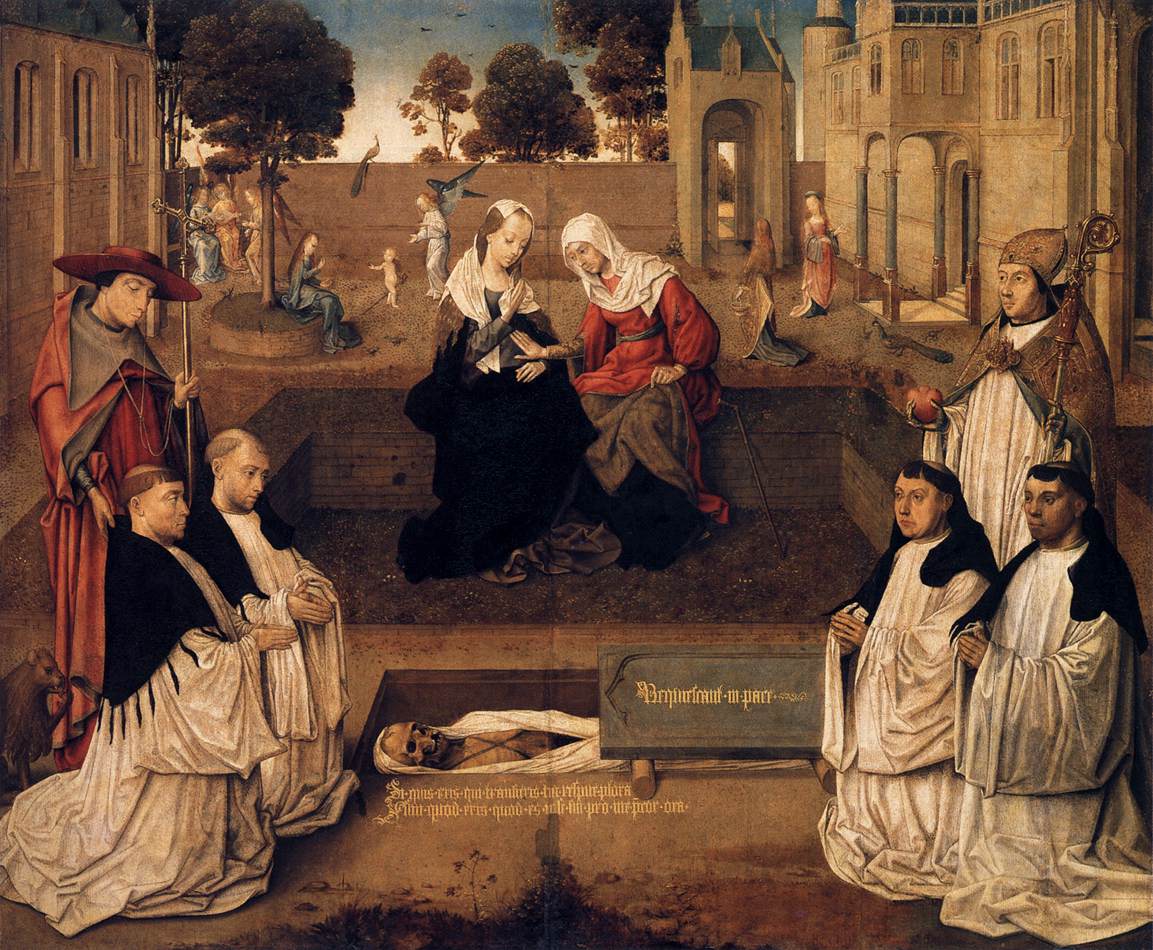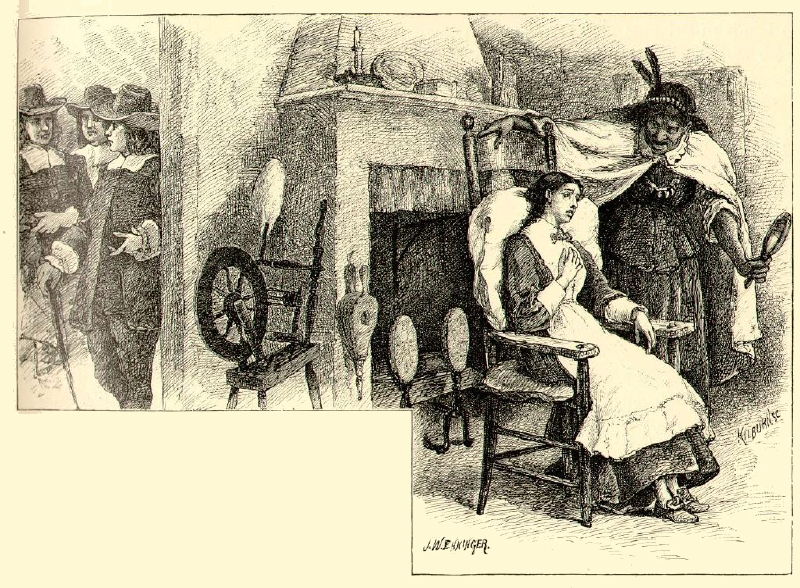|
Jean-Michel-d'Astorg Aubarède
Jean-Michel-d'Astorg Aubarède (1639 – 4 August 1692) was a canon regular and Vicar Capitular of the diocese of Pamiers. Biography He was educated at Toulouse (France), entered the Seminary of Pamiers, and later joined the regulars, who formed the cathedral chapter of that diocese. After the death of the bishop, François Caulet, Aubarede was chosen vicar capitular. As administrator of the diocese, he took up and carried on vigorously the resistance of Caulet to the royal demands in the matter of the '' droit de régale''. He refused to recognize royal nominations to local ecclesiastical benefices, and excommunicated the canons appointed by the king, when they attempted to exercise their office. He was arrested by royal order, and imprisoned for six years at Caen, where he died. Bernard Jungmann remarks (in Herder, K.L., I, 1567) that the Jansenist rigorism of Caulet and his clergy was partly responsible for their stubborn defiance of Louis XIV LouisXIV (Louis-Dieudonn ... [...More Info...] [...Related Items...] OR: [Wikipedia] [Google] [Baidu] |
Canon Regular
The Canons Regular of St. Augustine are Catholic priests who live in community under a rule ( and κανών, ''kanon'', in Greek) and are generally organised into religious orders, differing from both secular canons and other forms of religious life, such as clerics regular, designated by a partly similar terminology. As religious communities, they have laybrothers as part of the community. At times, their Orders have been very popular: in England in the 12th century, there were more houses of canons (often referred to as an abbey or canonry) than monasteries of monks. Preliminary distinctions All canons regular are to be distinguished from secular canons who belong to a resident group of priests but who do not take public vows and are not governed in whatever elements of life they lead in common by a historical rule. One obvious place where such groups of priests are required is at a cathedral, where there were many Masses to celebrate and the Divine Office to be praye ... [...More Info...] [...Related Items...] OR: [Wikipedia] [Google] [Baidu] |
Diocese Of Pamiers
The Diocese of Pamiers, Couserans, and Mirepoix (Latin: ''Dioecesis Apamiensis, Couseranensis, et Mirapicensis''; French: ''Diocèse de Pamiers, Mirepoix, et Couserans'') is a Latin Church diocese of the Catholic Church in southern France. Erected in 1295, it was a historical diocese of county of Foix. The diocese was suppressed in 1801, it was restored in 1822. The diocese comprises the department of Ariège and is suffragan to the Archdiocese of Toulouse. The diocese of Pamiers is divided into five Deaneries: Pamiers, Foix, Haut-Ariège, Couserans, and Pays-d'Olmes-Mirapoix. The episcopal see is the Cathedral of Saint Antoninus in the city of Pamiers. In 2021, in the Diocese of Pamiers, Couserans, and Mirepoix there was one priest for every 5,082 Catholics. History The traditions of the diocese mention as its first apostle of Christianity St. Antoninus, born at Fredelacum (Frédélas) near Pamiers in the Rouergue, and martyred in his native country at a date uncertain. Ca ... [...More Info...] [...Related Items...] OR: [Wikipedia] [Google] [Baidu] |
Toulouse
Toulouse (, ; ; ) is a city in southern France, the Prefectures in France, prefecture of the Haute-Garonne department and of the Occitania (administrative region), Occitania region. The city is on the banks of the Garonne, River Garonne, from the Mediterranean Sea, from the Atlantic Ocean and from Paris. It is the List of communes in France with over 20,000 inhabitants, fourth-largest city in France after Paris, Marseille and Lyon, with 511,684 inhabitants within its municipal boundaries (2022); its Functional area (France), metropolitan area has a population of 1,513,396 inhabitants (2022). Toulouse is the central city of one of the 22 Métropole, metropolitan councils of France. Between the 2014 and 2020 censuses, its metropolitan area was the third fastest growing among metropolitan areas larger than 500,000 inhabitants in France. Toulouse is the centre of the European aerospace industry, with the headquarters of Airbus, the SPOT (satellites), SPOT satellite system, ATR ( ... [...More Info...] [...Related Items...] OR: [Wikipedia] [Google] [Baidu] |
François Caulet
François () is a French masculine given name and surname, equivalent to the English name Francis. People with the given name * François Amoudruz (1926–2020), French resistance fighter * François-Marie Arouet (better known as Voltaire; 1694–1778), French Enlightenment writer, historian, and philosopher * François Beauchemin (born 1980), Canadian ice hockey player for the Anaheim Ducks * François Blanc (1806–1877), French entrepreneur and operator of casinos * François Bonlieu (1937–1973), French alpine skier * François Cevert (1944–1973), French racing driver * François Chau (born 1959), Cambodian American actor * François Clemmons (born 1945), American singer and actor * François Corbier (1944–2018), French television presenter and songwriter * François Coty (1874–1934), French perfumer * François Coulomb the Elder (1654–1717), French naval architect * François Coulomb the Younger (1691–1751), French naval architect * François Couperin (1668–1 ... [...More Info...] [...Related Items...] OR: [Wikipedia] [Google] [Baidu] |
Droit De Régale
A droit ( French for ''right'' or ''Law'') is a legal title, claim or due. Droits of admiralty (English law) The term is used in English law in the phrase " droits of admiralty". This refers to certain customary rights or perquisites, formerly belonging to the Lord High Admiral, but now to the crown, for public purposes and paid into the Exchequer. These ''droits'' (see also wreck) consisted of flotsam, jetsam, ligan - (goods or wreckage on the sea bed that is attached to a buoy so that it can be recovered), treasure, deodand, derelict (maritime), within the admiral's jurisdiction; all fines, forfeitures, ransoms, recognizances and pecuniary punishments; all sturgeons, whales, porpoises, dolphins, grampuses and such large fishes; all ships and goods of the enemy coming into any creek, road or port, by durance or mistake; all ships seized at sea, salvage, etc., with the share of prizes such shares being afterwards called "tenths", in imitation of the French, who gave their ... [...More Info...] [...Related Items...] OR: [Wikipedia] [Google] [Baidu] |
Caen
Caen (; ; ) is a Communes of France, commune inland from the northwestern coast of France. It is the Prefectures in France, prefecture of the Departments of France, department of Calvados (department), Calvados. The city proper has 105,512 inhabitants (), while its Functional area (France), functional urban area has 470,000,Comparateur de territoire , INSEE, retrieved 20 June 2022. making Caen the second largest urban area in Normandy (administrative region), Normandy and the 19th largest in France. It is also the third largest commune in all of Normandy after Le Havre and Rouen. It is located northwest of Paris, connected to the South of England by the Caen (Ouistreham) to Portsmouth ferry route through the English Channel. Situated a few miles from the coast, the landing beaches, the ... [...More Info...] [...Related Items...] OR: [Wikipedia] [Google] [Baidu] |
Bernard Jungmann
Bernard Jungmann was a German Catholic dogmatic theologian and ecclesiastical historian. Biography He was born at Münster in Westphalia on 1 March 1833; died at Leuven (Louvain), 12 January 1895. He belonged to an intensely Catholic family of Westphalia; like him, two of his brothers entered the Catholic clergy, one joining the Society of Jesus and the other becoming a missionary in the United States. After finishing his studies with brilliant success at the public schools of his native town, he entered the German College at Rome through the mediation of the bishop's secretary, afterwards Cardinal Melchers, and made his philosophical and theological studies in the Gregorian College. In 1854 he received the degree of Doctor of Philosophy; he was ordained priest in Rome on 8 June 1857, and two years later received the degree of Doctor of Theology. He then returned to Germany, and worked for a short time as chaplain in the church of St. Adelgunde at Emmerich. Malou, bishop of B ... [...More Info...] [...Related Items...] OR: [Wikipedia] [Google] [Baidu] |
Jansenist
Jansenism was a 17th- and 18th-century theological movement within Roman Catholicism, primarily active in France, which arose as an attempt to reconcile the theological concepts of free will and divine grace in response to certain developments in the Catholic Church, but later developed political and philosophical aspects in opposition to royal absolutism. It was based on the ideas of Cornelius Jansen, (1585-1638), a Dutch bishop, and his book '' Augustinus''. Jansenists believed that God’s grace was the only way to salvation and that human free will had no role. Jansenists provoked lively debates, particularly in France, where five propositions, including the doctrines of limited atonement and irresistible grace, were extracted from the work and declared heretical by theologians hostile to Jansen. In 1653, Pope Innocent X condemned five ideas from Jansenism in the apostolic constitution '' Cum occasione''. Although Jansenists had some protection under Clement XI, they ... [...More Info...] [...Related Items...] OR: [Wikipedia] [Google] [Baidu] |
Louis XIV
LouisXIV (Louis-Dieudonné; 5 September 16381 September 1715), also known as Louis the Great () or the Sun King (), was King of France from 1643 until his death in 1715. His verified reign of 72 years and 110 days is the List of longest-reigning monarchs, longest of any monarch in history. An emblem of the Absolutism (European history), age of absolutism in Europe, Louis XIV's legacy includes French colonial empire, French colonial expansion, the conclusion of the Thirty Years' War involving the Habsburgs, and a controlling influence on the Académie royale de peinture et de sculpture, style of fine arts and architecture in France, including the transformation of the Palace of Versailles into a center of royal power and politics. Louis XIV's pageantry and opulence helped define the French Baroque architecture, French Baroque style of art and architecture and promoted his image as absolute ruler of France in the early modern period. Louis XIV began his personal rule of France ... [...More Info...] [...Related Items...] OR: [Wikipedia] [Google] [Baidu] |
1639 Births
Events January–March * January 19 – Hämeenlinna () is granted Privilege (law), privileges, after it separates from the Vanaja (Finland), Vanaja parish, as its own city in Tavastia (historical province), Tavastia. *c. January – The first printing press in British North America is started in Cambridge, Massachusetts, by Stephen Daye. * February 18 – In the course of the Eighty Years' War, Action of 18 February 1639, a sea battle is fought in the English Channel off of the coast of Dunkirk between the navies of the United Provinces of the Netherlands, with 12 warships, and Spain, with 12 galleons and eight other ships. The Spanish are forced to flee after three of their ships are lost and 1,600 Spaniards killed or injured, while the Dutch sustain 1,700 casualties without the loss of a ship. * March 3 – The early settlement of Taunton, Massachusetts, is incorporated as a town. * March 13 – Harvard University is named for clergyman John Har ... [...More Info...] [...Related Items...] OR: [Wikipedia] [Google] [Baidu] |
1692 Deaths
Events January–March * January 24 – At least 75 residents of what is now York, Maine are killed in the Candlemas Massacre, carried out by French soldiers led by missionary Louis-Pierre Thury, along with a larger force of Abenaki and Penobscot Indians under the command of Penobscot Chief Madockawando during King William's War, between the French colonists and their indigenous allies, against the English colonists. * January 30 – English Army General John Churchill, 1st Duke of Marlborough, a close adviser to King William III of England, is fired from all of his jobs by the English Secretary of State, the Earl of Nottingham, on orders of Mary II of England. * February 13 – Massacre of Glencoe: The forces of Robert Campbell slaughter around 40 members of the Clan MacDonald of Glencoe in Scotland (from whom they have previously accepted hospitality), for delaying to sign an oath of allegiance to King William III of England. * February 17 – An annular ... [...More Info...] [...Related Items...] OR: [Wikipedia] [Google] [Baidu] |






